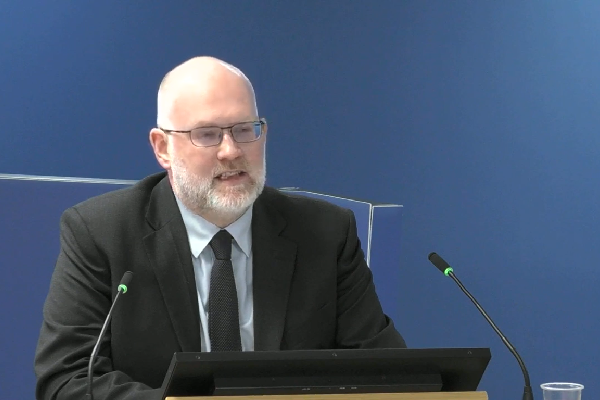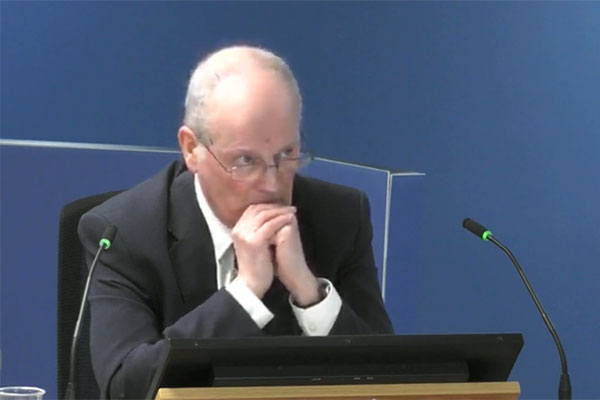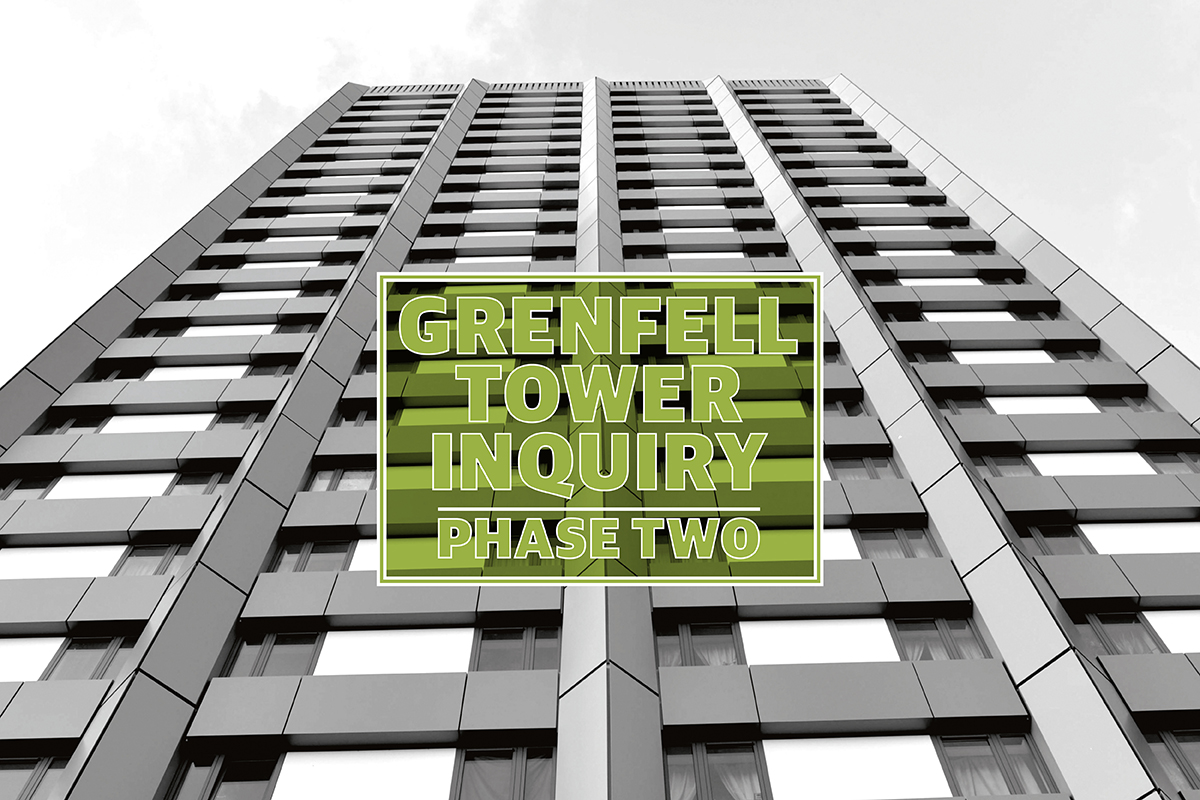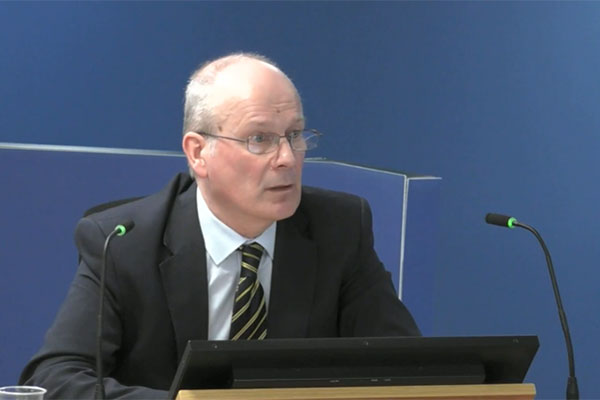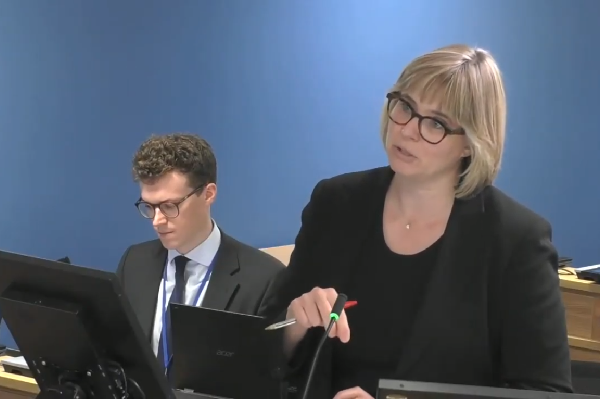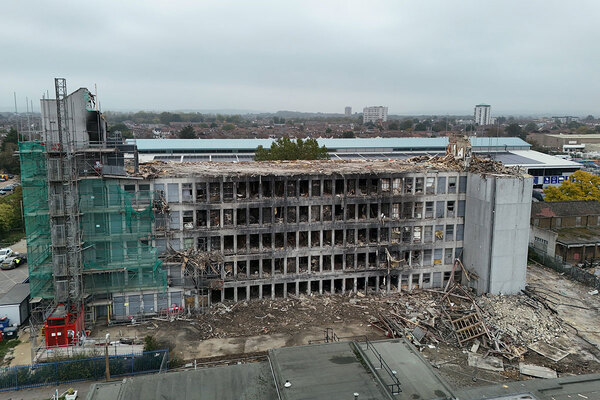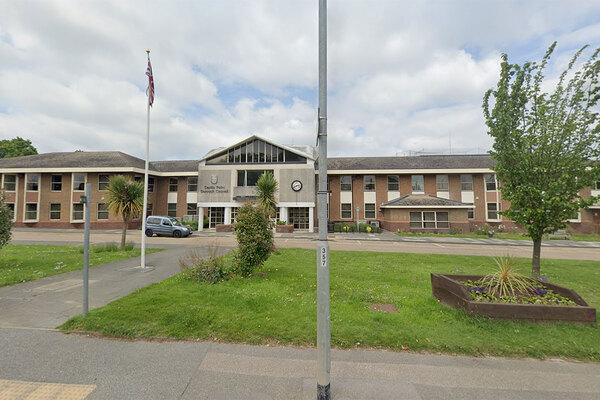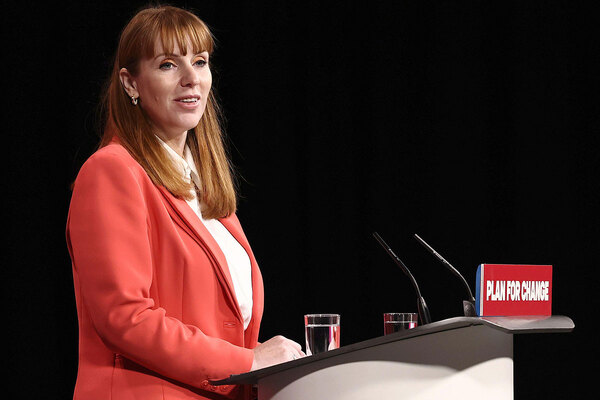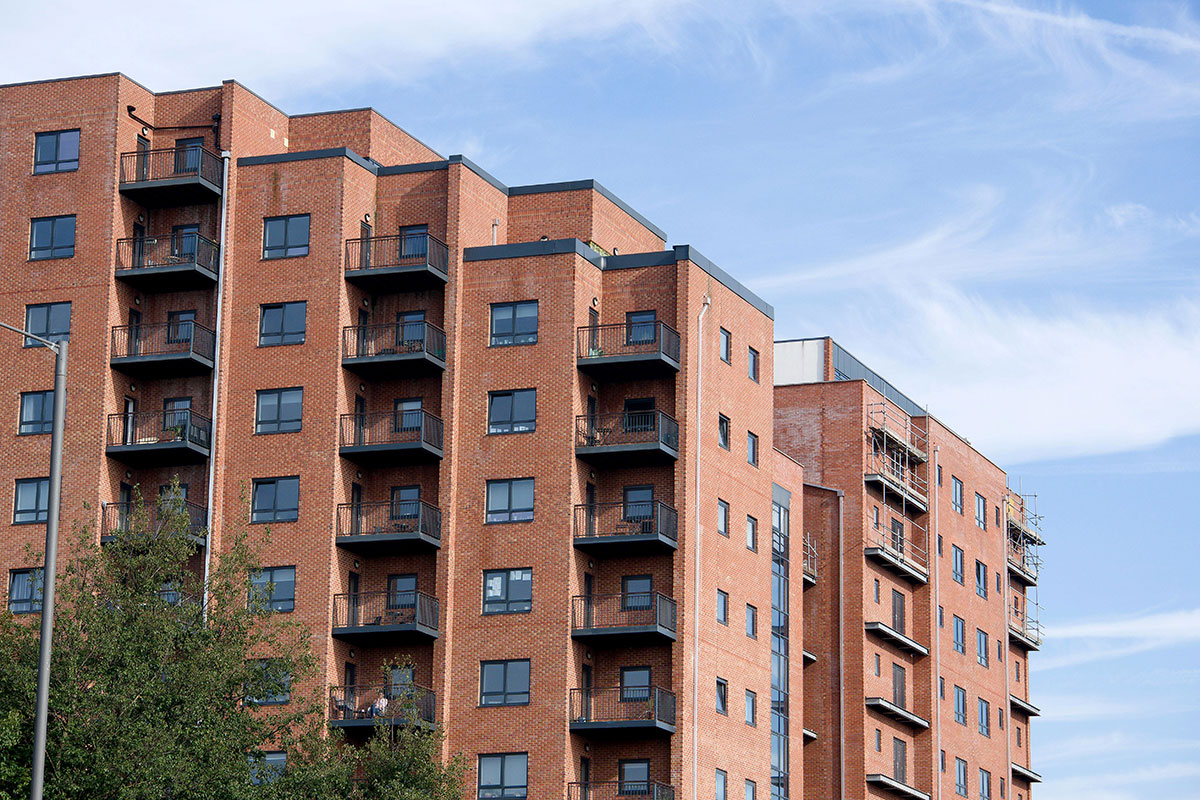Deregulation rules left officials ‘between a rock and a hard place’ on fire safety, says former civil servant
A former civil servant has said that his team was trapped “between a rock and a hard place” because of direct conflict between the government’s rules on deregulation and its commitment to review fire safety rules following a deadly tower block fire.
Today, the inquiry heard from Richard Harral, who was head of technical policy in the building regulations and standards division within the Department for Communities and Local Government (DCLG) from 2014 to 2017.
Mr Harral repeatedly spoke of his frustration at the lack of resources available to him to carry out the review, which was promised by the government in 2013 following an inquest into six deaths at Lakanal House in 2009.
He said he was left “furious” by delays to signing off the commencement of the work and explained that government rules on deregulation left his team “between a rock and a hard place”.
Following a three-month inquest in 2013, the coroner investigating the six deaths at Lakanal House wrote to central government describing Approved Document B, which contained building regulations guidance relating to fire safety, as “a most difficult document to use”.
She recommended a review to ensure that it was “intelligible to the wide range of people and bodies involved in construction” and “provides clear guidance… with particular regard to the spread of fire over the external walls of a building”.
Eric Pickles, communities secretary at the time, responded in May 2013 promising a new version of the document by 2016-17. However, at the time of the Grenfell Tower fire in June 2017, this work had barely begun.
Today, Mr Harral explained that a focus on deregulation during these years would have complicated any efforts to review the document.
In a bid to reduce regulation, the government adopted a ‘one in, one out’ rule in January 2011, which meant that a cost analysis of any proposed regulation had to be carried out, with the equivalent amount of cost removed from industry by cutting other regulations.
This was strengthened to ‘one in, two out’ in 2013 and ‘one in, three out’ in 2016.
“Was that very evident at the time to all of you working within the department that there was suddenly a much more aggressive approach to deregulation in that period?” asked counsel to the inquiry Kate Grange QC.
“It was very tangible,” said Mr Harral. “The general appetite for deregulation was manifested in a range of ways… and discussions with ministers reinforced that.”
He gave the example of a conversation with former planning minister Nick Boles, who he said was initially “quite enthusiastic” about higher space standards before concluding that “that’s regulation, we shouldn’t be doing that”.
He said that even clarifying or simplifying the guidance would have triggered a cost review requiring deregulation, given the cost imposed on industry to have to familiarise itself with the new guidance.
Despite contradictory guidance on whether non-mandatory rules such as Approved Document B were captured by the regime, Mr Harral said it was always made “very clear” that the guidance was impacted by the rules.
The inquiry has previously heard that the promised review of Approved Document B was ultimately “packaged up” with a broader review of other regulations in 2015, potentially delaying the process.
Mr Harral said today that was done to make it easier to meet the ‘one in, two out’ requirement.
He said he believed the review might need to impose “quite significant cost” on industry to deal with issues such as the safety of timber-frame buildings and basement smoke extraction.
“Whatever that cost, we would need at least twice that amount of deregulation to fund and so it was necessary to be able to develop the regulatory process in parallel,” he said.
“I did not want to have to find all the savings from within Part B [which relates to fire safety] to make that work.”
“We had no other way through,” he added. “The regulatory requirements applied to life safety measures as much as they did to other measures.”
“So you were just stuck between a rock and a hard place?” asked Ms Grange.
“Yeah. I mean, this is what the policy was intended to do. It was intended to make it difficult to introduce new regulation,” said Mr Harral.
He was repeatedly asked if he ever sought an exemption from the rules, but said he did not, adding that it was “way beyond my pay grade” to suggest the rules on deregulation be set aside.
He also said his team was left with limited resources to work on the review. The department shrunk from 14 construction professionals and three senior civil servants in 2006 to five technical specialists and one senior civil servant by 2015.
He said he “did not believe we had any chance of successfully bidding for [more] resource” until the review of the guidance was up and running, as higher-priority work would take precedence.
“The way that we worked… we had been squeezed to fit the resource,” he said. “We had been squeezed so much that the only way we could keep up with what was going on was this very light-touch approach.”
The inquiry saw that in May 2014 Mr Harral emailed Brian Martin, the civil servant with primary responsibility for Approved Document B, to say that he had “never quite understood what needed to be sorted out in [Approved Document B] as a result of Lakanal House”, and asked for clarification.
“Can you explain how you were still unclear about what needed to be sorted out and Approved Document B at this time?” asked Ms Grange.
“I’m very embarrassed by this email and I apologise if it’s caused any stress or upset. It’s a naive email and it was purposefully written in a naive manner,” he replied.
He said that as a result of “tension” with Mr Martin, who Mr Harral managed, he was trying to “seek a slightly broader conversation about what changes were needed”.
After the general election in 2015 and the appointment of new ministers, a meeting was held where the new minister James Wharton was told that the review of Approved Document B was still planned but had not yet been signed off by ministers.
The first step was to establish a working group to advise on any proposals for review and ask for expressions of interest from industry figures present in taking part.
“Had any progress been made with the… working group by the time of the Grenfell tower fire in June 2017?” asked Ms Grange.
“We still hadn’t managed to get the right clearances to set the group up,” said Mr Harral.
He said his team was still working on a “discussion document” that would support the group’s work.
“There were a whole series of delays that happened between these two dates, not least the vote to leave the European Union the following year,” he added.
The inquiry saw that by November 2015, the timeline for the “simplification” of the building regulations had slipped so far that they would not be in force until 2019.
“Now, the extension to the timeframe given in the Lakanal commitment was not highlighted in the submission, was it? It’s not there,” said Ms Grange.
“We should have been tracking that far better and making it more apparent, I accept that,” said Mr Harral.
Mr Harral’s team then developed a package of submissions by summer 2016. But when the team sought to put this to ministers, its members were told that they “shouldn’t be rushing to put things to new ministers” who had just taken role following the Brexit referendum and the resignation of David Cameron as prime minister.
“Do you remember being concerned that you were being told not to rush things with the new ministers?” asked Ms Grange.
“I imagine I was furious but the department was in post-referendum shock. There was a lot of readjustment going on to the new government. It was really difficult to cut through that at that point in time,” he said. “I was probably starting to feel pretty despondent by this point, quite frankly.”
Mr Harral left his role at the department in late 2017, around six months after the Grenfell Tower fire. He told the inquiry the stress of work had made him ill with “largely stress-related and exhaustion-related problems”.
“I had got to a point where I had to recognise that I couldn’t achieve what I wanted to achieve. And that the anxiety and frustration of not being able to actually move things forward was essentially… I remember very clearly realising it was going to kill me if I stayed,” he said.
The inquiry continues with further evidence from Mr Harral tomorrow.
Sign up for our weekly Grenfell Inquiry newsletter
Each week we send out a newsletter rounding up the key news from the Grenfell Inquiry, along with the headlines from the week
Already have an account? Click here to manage your newsletters
